Holocaust survivor Eva Schloss speaks in Westlake PAC, encourages youth to be active
Sitting across from Holocaust survivor Eva Schloss, it’s hard to imagine the hardships she has faced in her lifetime. She’s wearing blue pants, her favorite color, and although she’s 90 years old, she insists on taking the stairs up to the PAC stage. Once she begins talking, however, it is clear that Schloss has witnessed some of the most cruel and horrific acts in human history. She uses her past experiences to urge people to be active in government and to teach people about the history of the Holocaust.
“The purpose of my talk is to educate [people] to be good human beings,” Schloss said.
Schloss was born in Vienna in 1929 to Elfriede and Erich Geiringer. She had one brother, Heinz, who was three years her senior. In 1933, Schloss’s life was changed forever when Hitler took control of Germany and began his mission of exterminating Jews and all others not included in his “master race.” In an interview with Viterbo University Holocaust teacher Darryle Clott on Mar. 25, Schloss remembers the first acts of discrimination experienced by her Jewish family.
“My brother was 12 years old,” Schloss said. “He went to school one day, and when he came home he looked terrible. His clothes were torn, and he was beaten up. When my parents saw him, they were shocked. He said, ‘My old friends did that, and the teachers just let it happen and looked on.’”
Schloss said that during this time period, she too began to experience a similar ostracization from her peers and community.
“My best friend was a Catholic girl,” Schloss said. “After school I usually went home with her and played a game or gossiped. But the next day when I went over, her mother saw me, and I could see she looked very cross. She said to me, ‘We never want to see you here again,’ and she slammed the door in my face.”
Schloss, only a child at the time, was obviously distraught over this interaction. She went home crying and told her mother what had happened.
“My mother said, ‘For Jewish people, life is going to be really terrible from now on,’” Schloss said.
Eventually, the antisemitism in Germany became too dangerous for Schloss’s family. In 1938, they fled to Brussels and stayed in a boarding house. There, she made several friends her age and invited them to her 10th birthday party. On the day of her birthday, every single girl got a note from her parents that said she was not allowed to come. Eighty years later, a wave of sadness still sweeps over her face as she tells this story.
“I felt like an outcast,” Schloss said.
Almost a year later, Schloss and her family moved to Amsterdam. There, she met and befriended an 11-year-old Anne Frank.
“Very often people ask me, ‘What was the last conversation you had with her?’ or ‘What did you talk about?’” Schloss said. “I say, ‘well you know, at the time she was just one of my friends. There was nothing special yet about her. She wasn’t famous, so I really wouldn’t remember what we talked about.’”
In Amsterdam, her family was forced to go into hiding. The group of four was split into two pairs: Eva and her mother and Eva’s brother and her father. Eva’s brother and father were betrayed by a nurse who was secretly a Nazi spy. She led them to a “safe house” where they were then captured by the Nazi’s and sent to the concentration camp Auschwitz. Eva and her mother were taken to Auschwitz on Eva’s 15th birthday after they were followed home from visiting her brother and father.
Auschwitz was the largest Nazi concentration camp. In its four-and-a-half years of existence, 1.1 million people died within its walls. Eva’s brother and father were among that number. They died two days before the camp was liberated in July of 1945. Eva’s brother, Heinz, was only 19 years old when he perished in the camp.
“[My brother] was a wonderful musician,” Schloss said. “He could play the piano, he had an accordian, and he composed.”
When Heinz was forced into hiding he had to forfeit his passion for music. To fill this gap in his life, he pursued art and created many paintings while hiding in Amsterdam. Years after liberation, Eva rediscovered the paintings and donated some to the Verzetsmuseum in Amsterdam, so that many people could appreciate her brother’s art. She admits that she did not donate all of the paintings. Some, she kept for herself. To her, the paintings remind her of her brother’s talent and honor his life.
Similarly, Otto Frank clung onto mementos of his lost loved ones. After discovering Anne’s diary, Frank dedicated his life to spreading her story.
“He talked continuously about her,” Schloss said. “He was quite obsessed with her message and with her. He had two daughters and he often said ‘I’m actually quite guilty, I feel, because I only talk about Anne and never about Margot.’”
The diary was not popular until 1952 when it was published in America. It became an instant bestseller and opened the American public’s eyes to the horrors of the Nazi regime in Germany. Schloss, having lived the story described in Anne’s diary, was surprised by its popularity.
“For me the diary was not a revelation,” Schloss said. “I knew exactly how it was to be in hiding for two years.”
While studying to become a professional photographer in London, Schloss met a young man named Zvi. He asked her to marry him six months after meeting each other.
“I said ‘no thank you,’” Schloss said. “‘I have my mother in Amsterdam and I’m going to go back.’”
When Schloss told Otto Frank about this, he confessed his love for her mother, explaining that he planned to marry her. Now assured that her mother would be taken care of, Schloss agreed to marry Zvi in 1952.
“I went back to this young man and I said, ‘You can marry me now’ and he was very happy,” Schloss said. “We didn’t really know each other, but it was a very good choice.”
After 64 years of marriage, Zvi died in 2016 at 94 years old.
In 1988, Schloss published “Eva’s story” which told of her life in Nazi Germany. Now, she tours the world twice a year, speaking to students about why it is important to remember and talk about the Holocaust in the context of current events. Elizabeth Ravasio, who travels with Schloss on her tours, said her talks generally attract crowds of around 2-and-a-half thousand to 3 thousand students.
“It’s awesome to travel with her,” Ravasio said. “One time, a rich lady donated 1,000 copies of Eva’s book to an audience so that everyone could read about her story.”
Recently, students at a school in Newport arranged beer cups in the shape of a swastika and heiled Hitler. One student took a picture which went viral on social media. Schloss, who happened to be in Newport at the time of the scandal, was asked to educate the students on the impact their actions had to all those affected by the Holocaust.
“I was really very interested to know why they did that,” Schloss said. “I asked them, ‘Did you realize you would insult and hurt many many people?’ They were a bit embarrassed. At first, they didn’t want to answer. Eventually one said, ‘Well we didn’t really realize what the swastika meant nor the Hitler salute. It was just a joke.’ That shocked everybody.”
The students were expelled for 10 days which they spent learning about the history of the Holocaust and writing essays about the horrible crimes of the Nazi’s against the Jewish people. Schloss encouraged this education, but said that it must be introduced at a younger age.
“At 16 [years old] it’s too late,” Schloss said. “With 12, you can already start, and with 14, maybe go into more depth. By 16, you should know.”
But Schloss also says it shouldn’t rest entirely on schools to teach youth about history and ethics.
“It’s not just the schools that have to teach; It’s at home as well,” Schloss said. “The children have to know about the things that have happened in the world.”
Schloss hopes that her talks will encourage young people to be active in opposing government decisions that they believe to be unjust.
“German people were highly educated people, but they were cowards,” Schloss said. “They just kept silent. That is what unfortunately happens now as well. Very often the government does things that people don’t like, but people just accept it. This is what we must not do, especially young people who will soon be able to vote. [They] have to speak up if injustice is being done.”
Schloss sees parallels between the tyrannical Nazi rule in Germany and some of the current decisions made by the U.S. government.
“When Austria made the wall in Germany to keep the other people from Germany out, there was an outcry,” Schloss said. “Now America wants to build the wall to keep refugees out, especially Mexicans. Our economy would collapse without the Mexican people. The American people should say, ‘You know, we don’t want the wall.’”
If there’s one thing Schloss wishes to leave with her audiences, it’s that history should serve to guide the next generation in preserving fair and equal rights for all.
“If there’s injustice being done you have to take sides and speak up,” Schloss said. “You have to learn about history so that we don’t repeat it again.”
For more about Eva’s story, visit her website or watch the short documentary, “116 cameras.”

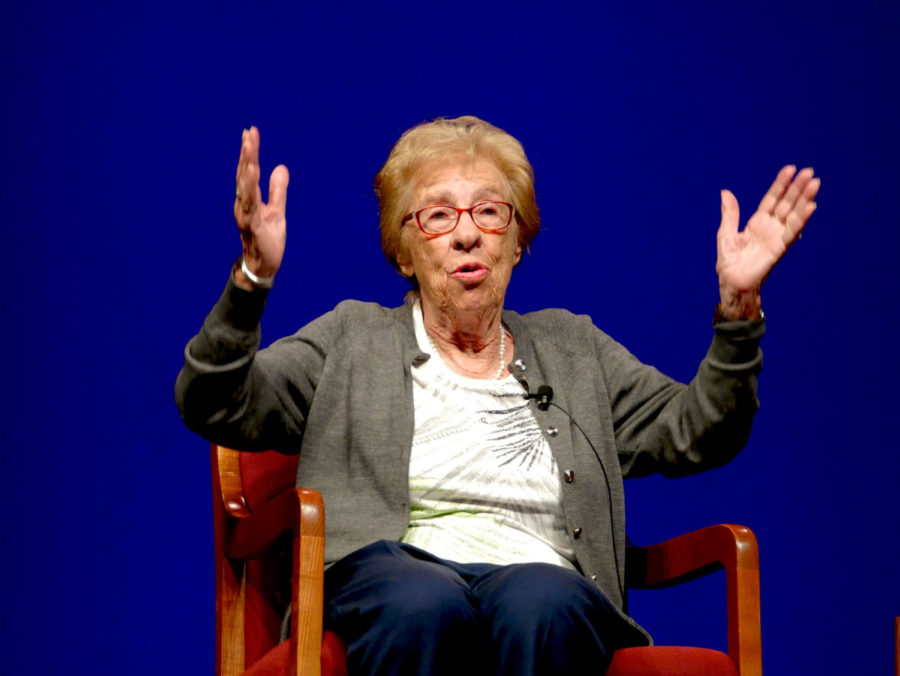
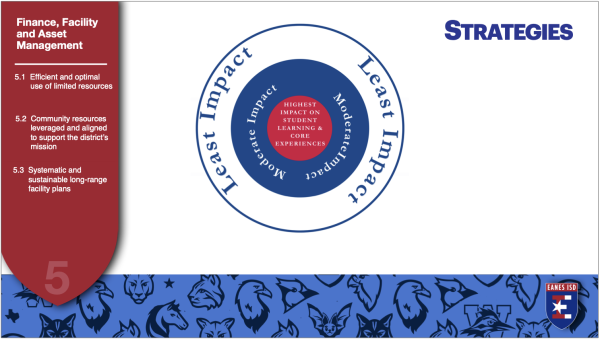
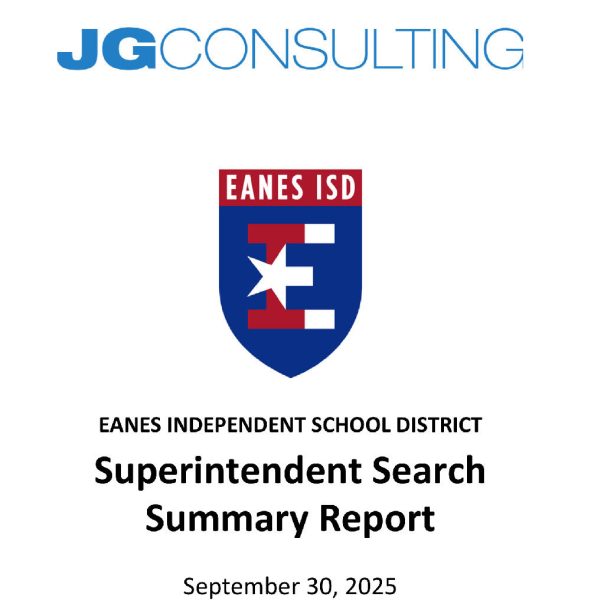
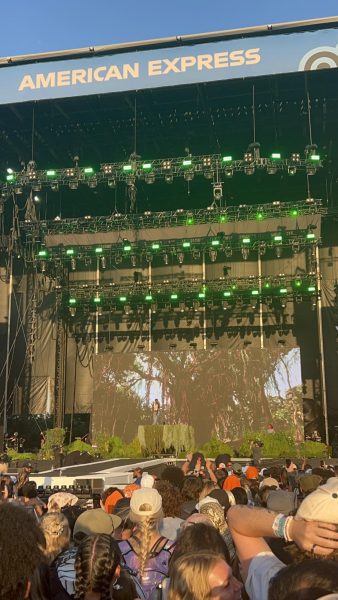
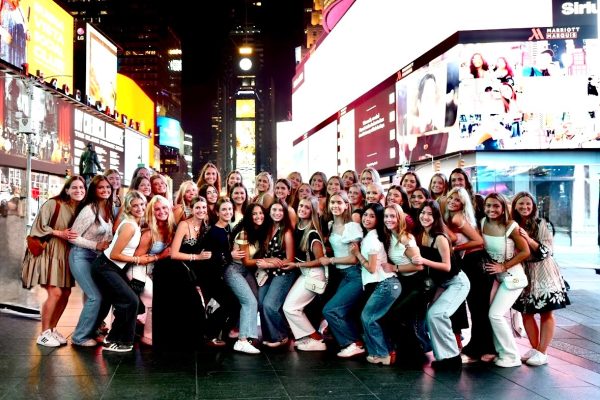

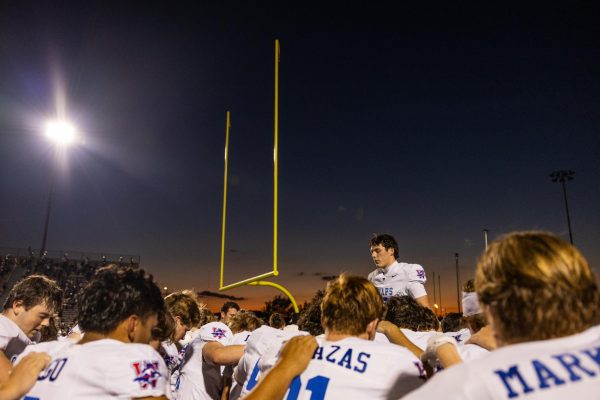

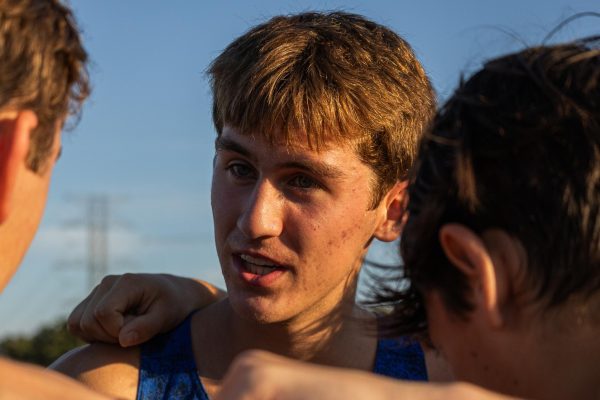
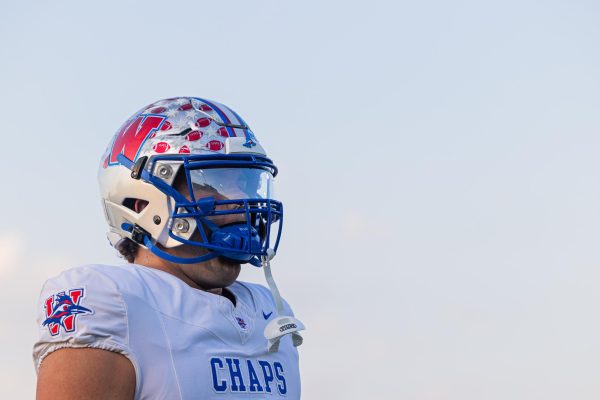

Lucy Katz • Jun 18, 2019 at 5:33 pm
I was one of the eight Team Eva organizers. Your article is well written and highlights many important pieces of information that we all wanted to make sure was passed on to the audience. And yes, If there’s injustice being done you have to take sides and speak up and take action. If you don’t and you stand back and allow injustice to happen, you are as guilty as the perpetrators.
“You have to learn about history so that we don’t repeat it again.”
Lucy Taus Katz
Hidden Child Survivor